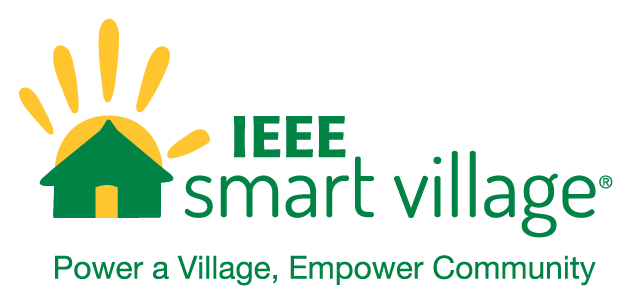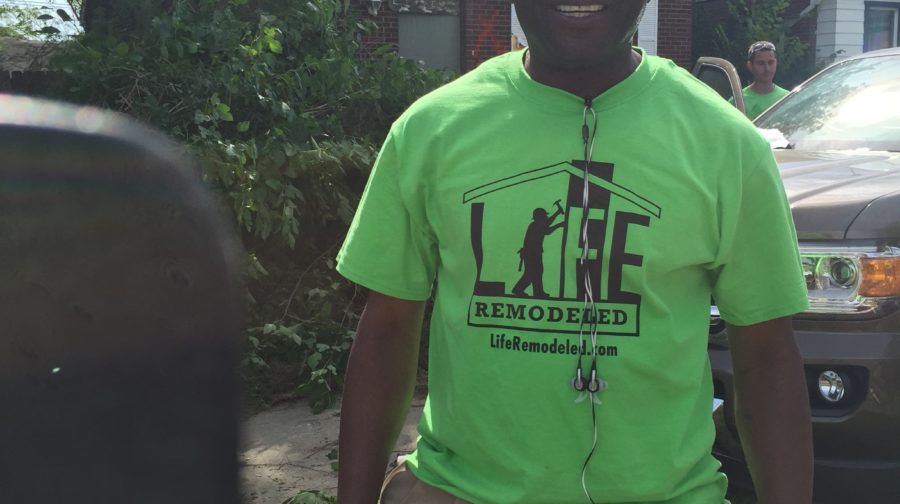Testimonial from Avoki Omekanda: Restoring Education and Energy to the Nation of His Birth
IEEE Smart Village Entrepreneur Avoki Omekanda remembers a time when the country he was born in offered a decent and affordable education, but it’s been decades since things have been that good in what is now the Democratic Republic of the Congo (DR Congo), formerly Zaire.
“I was born right before the independence,” he says, “in 1957. But as time passed, life became miserable there. The university was closed for two years, 1979 and 1981, under the military dictatorship of President Mobutu Sese Seko.”
Avoki attended high school and the first two years of engineering school in the Congo before leaving to continue his education in Morocco for two years, and Belgium for 12 years, where he obtained his Engineer diploma and PhD in Electrical Engineering. “Things back home were not good then,” he remembers.
They still aren’t. Decades spent under Mobutu’s dictatorship followed by years of civil wars ravaged the country, claiming more than six million lives due to fighting and starvation.
Avoki returns three times each year to teach electrical engineering at a local university in the capital city of Kinshasa, where students will sit in the hot auditorium to hear him lecture sometimes as long as 10 hours, “just to hear something new in recent advances of science and engineering. They really appreciate that,” he marvels.
Taking time away from his job as a Research Engineer at General Motors R&D Center to teach in Kinshasa isn’t easy, but Avoki cobbles together weekends, holidays and vacation time to make it work because he wants these students to have as good an education as possible. “There is no internet, no library at their school. It’s miserable. The students will come any time I tell them to come. I show them videos and tell them the real engineering story,” he says. “I try to raise their hope by showing them, ‘I am one of you.’ I tell them, ‘Just work hard and keep grabbing whatever you can in life.’ They listen.”
He’d like to do even more. Through his position on IEEE-Industry Applications Society (IAS)’s Executive Board, Avoki learned about the Smart Village program, which provides innovative, sustainable electrical systems and start-up training and support to energy-deprived communities in the poorest nations of the world. “As soon as I showed an interest in this, the President of IEEE-IAS said, ‘This is great,’ and started to show me slides about what IEEE Smart Village was doing in Nigeria, Haiti, Namibia, Zambia, etc. But not DR Congo.”
Before he knew it, he was being asked to become Ambassador for Smart Village programs for all of Africa, Avoki says. That seemed too much, so he asked a Ghanaian colleague, Dave Kankam, who works at NASA to split the continent with him. “I asked him to take half of Africa and I took the other half, including Congo.”
He’s particularly interested in helping people in Sankuru, the region in which he grew up. “It’s about as big as the state of Michigan,” he says, “and they have zero electricity.”
Avoki is putting together a Development Program for Sankuru province of DR Congo, with the help of skills gained from a Masters’ Degree in Development Practice (MDP) taught online by Regis University, with support from the IEEE Smart Village.
“One of the things we learned is that engineers think that because they have a solution, that solution will work everywhere,” he says. “This is a mistake. Something that works in America might not work everywhere. They told us to be humble. Talk to these people. Find out what are their needs, come up and listen to them and get their feedback. Make sure what you want to implement there is sustainable.”
Following this advice, Avoki met with his colleague at the University in Congo, who also happens to be the governor of Sankuru. He asked him to connect him to NGOs and others in his province that could advise him on their most pressing needs.
“Whatever I do there needs to be sustainable. I don’t want to do this and then leave and everything collapses.”
Avoki understands the importance of creating solutions that can be sustained because he has seen firsthand what happens when a program is not sustainable. He laments that the educational systems put in place in the Congo by Belgium that were there during his youth are now gone. “Everything has collapsed,” he says. “There’s no library now, nothing. I know they used to have it – I was there. It was not sustained. It was a failure. You bring education and then you leave and everything collapses.”
Having a local administrative and political contact, such as the governor of Sankuru, could also help cut through any bureaucratic or other hurdles, he notes. “The surface area of DR Congo is equal to 2.3 million square kilometers, which is an equivalent of 2/3 of the European Union. So, starting our development work in a local region, such as Sankuru, will increase our chance of success in DR Congo.”
Through his contact, Avoki has been putting together a local team that recently met in Kinshasa to discuss Sankuru’s needs and make plans for a survey to be conducted in the near future. He learned that USAID has been donating medication to the region but there is no place to properly store it because there is no power to keep it cool. Another big need is for irrigation, which can be accomplished through solar-powered pumps. There is also a need for clean water. None of these things can be accomplished without electricity.
“There’s kind of a chain of things,” he says. “Our goal is electrification, but only electricity is not enough.”
Helping the people in his region of birth would be a dream come true for Avoki, who feels compelled to give back to a people and place that inspired him to become what he is today. “As I was growing up, math and science were easy for me,” he remembers. “I was first in my class, it came naturally to me, but I didn’t appreciate it. Then one day the principal of my high school came to me and he said, ‘Someone like you needs to go to a school of engineering.’ He even said, ‘I am going to do my best to get a scholarship for you,’ which he did. My family and friends encouraged me, too, because they said being an engineer is a hard thing, but for me it was easy.”
“So I decided to become an engineer, because I wanted to bring technology into people’s lives in DR Congo in order to make life better.”
One thing he wants to see happen quickly is to provide light in people’s homes so that children can do homework at night. “Darkness comes at 4 p.m.,” he says. “There aren’t even candles. Candles are a luxury. They have tree oil and a piece of cotton and you light it. The oil is very bad for your health.”
He also wants to focus on improving the educational system. “The state of schools in DR Congo needs special attention! They appear to lack everything.” He wants to start by running an assessment with his IEEE Smart Village colleagues to quantify the country’s needs and then identify local partners who can help bridge those gaps.
Working with the IEEE Smart Village, he says, has finally given him the opportunity to create substantial change. “The willingness to help people of DR Congo was always in me” he says. “But the opportunity created by the IEEE Smart Village initiative has been a vector and a platform that I can now use to make this dream real. It’s very time consuming, but very satisfying, to think that I can one day make a difference.”


